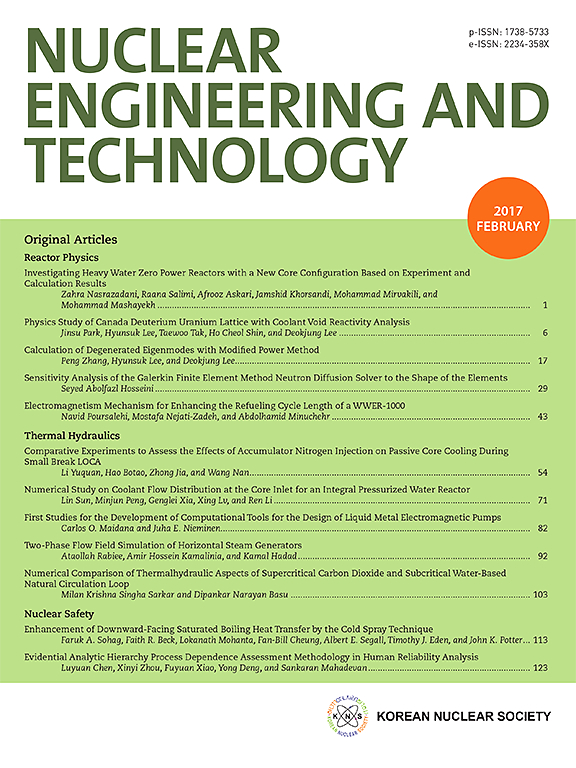Imaginaries of the resilient second nuclear era: Nuclear paradox resolution and a feasible atomic priesthood
IF 2.6
3区 工程技术
Q1 NUCLEAR SCIENCE & TECHNOLOGY
引用次数: 0
Abstract
The enduring philosophical and political struggle between embracing nuclear energy as a climate solution and an economic catalyst, and resisting it over risks of weapons proliferation and catastrophic accidents, has been a prominent fixture since the aftermath of Hiroshima and Nagasaki. Termed as the nuclear paradox, this dual framing of nuclear energy often oscillates between promise and peril depending on which aspect of its duality appears more immediate, leaving society to navigate the difficult trade-offs. This study re-examines the structural shortcomings of the first nuclear era and outlines the conditions necessary for a more resilient second phase of nuclear development in the context of today's evolving energy market. It argues that the Liquid Fluoride Thorium Reactor (LFTR), through its distinctive reactor design and fuel cycle, offers a comprehensive response to long-standing concerns about safety, economic viability, proliferation, and waste permanence—exemplified by the ill-fated concept of the Atomic Priesthood. The analysis concludes with concrete policy recommendations to accelerate LFTR research and implementation, contributing to the realization of a more secure and sustainable nuclear energy future.
弹性第二核时代的想象:核悖论的解决和可行的原子祭司
在接受核能作为气候解决方案和经济催化剂,以及因核武器扩散和灾难性事故的风险而抵制核能之间,长期以来的哲学和政治斗争一直是广岛和长崎爆炸后的一个突出问题。这种核能的双重框架被称为核悖论,它经常在希望和危险之间摇摆,这取决于其双重性的哪一方面看起来更直接,让社会在艰难的权衡中导航。本研究重新审视了第一个核时代的结构性缺陷,并概述了在当今不断发展的能源市场背景下更具弹性的核发展第二阶段所需的条件。报告认为,液态氟钍反应堆(LFTR)通过其独特的反应堆设计和燃料循环,全面解决了长期以来对安全性、经济可行性、核扩散和废物永久性等问题的担忧——原子祭司(Atomic priest)这一倒霉概念就是例证。该分析最后提出了具体的政策建议,以加快LFTR的研究和实施,有助于实现更安全和可持续的核能未来。
本文章由计算机程序翻译,如有差异,请以英文原文为准。
求助全文
约1分钟内获得全文
求助全文
来源期刊

Nuclear Engineering and Technology
工程技术-核科学技术
CiteScore
4.80
自引率
7.40%
发文量
431
审稿时长
3.5 months
期刊介绍:
Nuclear Engineering and Technology (NET), an international journal of the Korean Nuclear Society (KNS), publishes peer-reviewed papers on original research, ideas and developments in all areas of the field of nuclear science and technology. NET bimonthly publishes original articles, reviews, and technical notes. The journal is listed in the Science Citation Index Expanded (SCIE) of Thomson Reuters.
NET covers all fields for peaceful utilization of nuclear energy and radiation as follows:
1) Reactor Physics
2) Thermal Hydraulics
3) Nuclear Safety
4) Nuclear I&C
5) Nuclear Physics, Fusion, and Laser Technology
6) Nuclear Fuel Cycle and Radioactive Waste Management
7) Nuclear Fuel and Reactor Materials
8) Radiation Application
9) Radiation Protection
10) Nuclear Structural Analysis and Plant Management & Maintenance
11) Nuclear Policy, Economics, and Human Resource Development
 求助内容:
求助内容: 应助结果提醒方式:
应助结果提醒方式:


